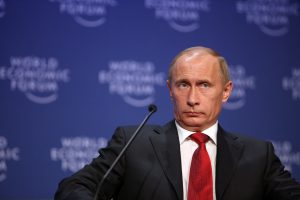One does not understand the disagreement. One does not understand why it is necessary to bring together the representatives of the 27 Member States on Monday, since the question is so simple. If we Europeans wish to contribute to the success of the mobilisation decreed by Vladimir Putin, we close our borders to the would-be deserters. Since we do not want this and, on the contrary, want as many young Russians as possible to refuse to take part in the aggression against Ukraine, we open our borders to them.
There is no clearer choice, but the Baltic States, Finland and Poland, countries whose denunciation of Vladimir Putin and his war crimes is unambiguous, intend to refuse protection to Russians fleeing the mobilisation.
Their first reason, the one they all invoke, is security. They fear, they say, that the Russian services could mix with deserters many of their agents charged with stirring up trouble or to integrate well enough to become unsuspicious spies.
This is undeniably a danger, but the Russian services are now so busy breaking down resistance in the occupied areas of Ukraine and preventing any real anti-war movement in Russia that they have little time to devote to building new networks in Europe. This danger should not be overestimated and could easily be countered by distributing these deserters among the 27 EU Member States, which would then have ample opportunity to study their files case by case.
As for the second reason against the reception of would-be deserters, it comes essentially from the Baltic States. “Many of the Russians who are fleeing the mobilisation were in favour of killing Ukrainians,” says the Latvian Foreign Minister. Granting protection to deserters,” adds the Estonian Interior Minister, “would be in contradiction with sanctions aimed at the collective responsibility of Russian citizens.
The idea is that all Russians should be punished for the Kremlin’s crimes, just as if the crimes of Nazism were to be blamed on all Germans, even those whom Hitler had sent to the camps. This is not the position of the Ukrainian president who, in Russian, called on young Russians to desert. He did so because he obviously wants to avoid a build-up of Russian troops, but like many of their compatriots, these Baltic ministers are thinking about the post-war period.
They do not want it to be said that Putin was not the whole of Russia. On the contrary, they want all of Russia to be found guilty of Putin’s crimes so that it is ostracized, weakened, and if possible divided, and can no longer threaten them.
What they want is for Russia to be treated in the same way as Germany was at the end of the First World War, and certainly not in the same way as it was at the end of the Second. This is understandable, as these countries have every historical reason to be suspicious and resentful of Russia, but the Treaty of Versailles gave birth to Nazism, whereas the Marshall Plan allowed the emergence of an exemplary democracy.
Victims are not always good judges and, in any case, the question is simple: do we want to thwart Mr Putin’s efforts or help him mobilise?


